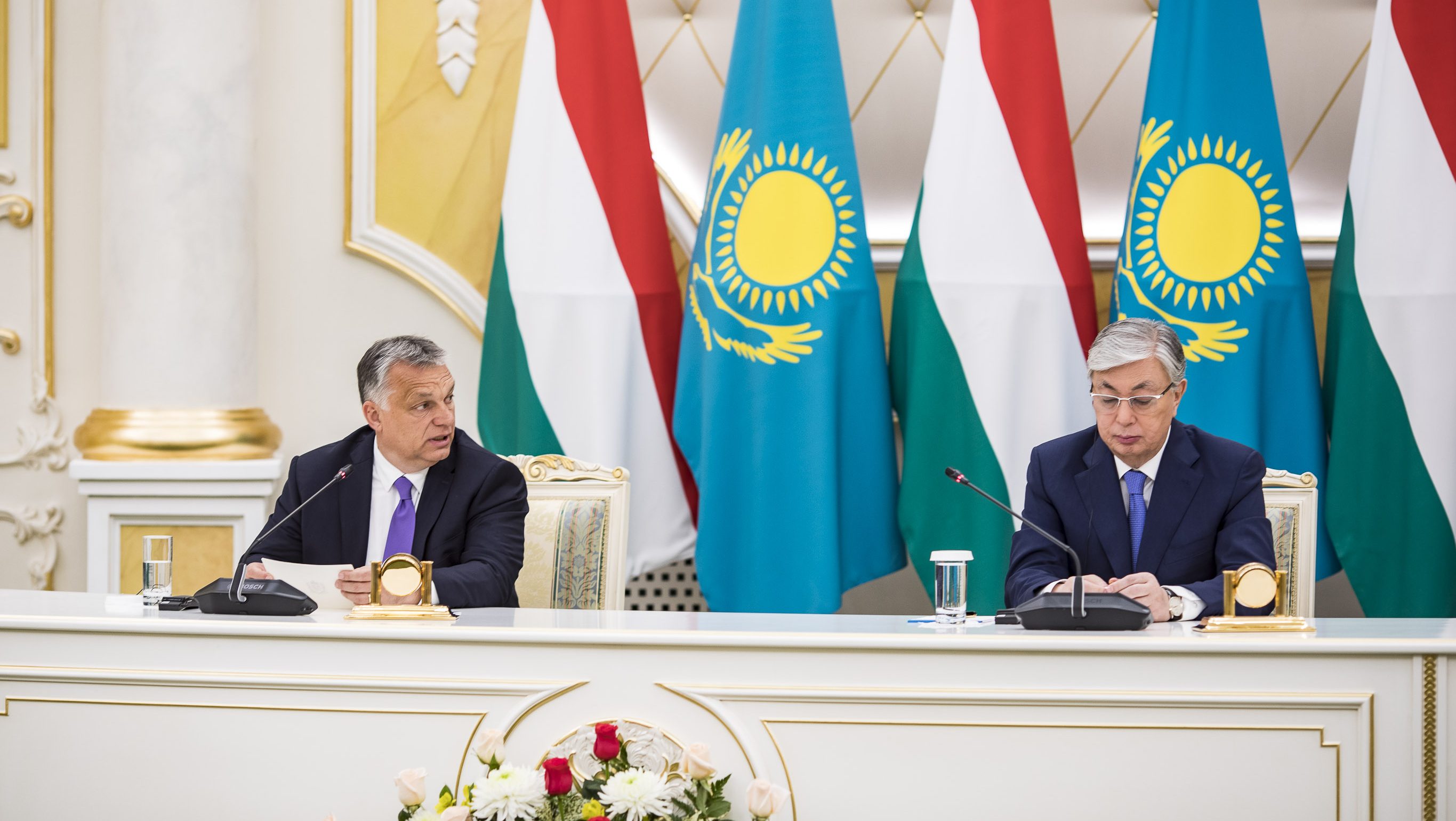
The Prime Minister said they had arrived in Uzbekistan with high hopes and optimism. They have seen the modernisation as well as the political and economic experiments of the past few years, and can see that Uzbekistan has embarked on an overarching project: they are attempting to mobilise the available resources within the framework of a modern economy, and this is an admirable programme, he concluded.
He said they came to Uzbekistan with pleasure also because this visit gives them an opportunity to say thank you in person for the noble gesture made a year ago. The pandemic had just started, and there was not enough personal protective equipment, “let alone” vaccines,” he recalled.
He pointed out that in that difficult situation when everyone needed personal protective equipment, Uzbekistan and its president “had the Hungarian people in their thoughts” and sent hundreds of thousands of face masks to Hungary in order to prevent the spread of the epidemic. The Hungarian people will never forget this, he added.
Mr Orbán highlighted that the whole spectrum of world politics and world economy is changing. One could bet large sums of money that in ten years’ time “we will be in a completely different world than we are now,” he said. He added that some regions will rise, the significance of others will decline, the centres of gravity in the world economy will undergo changes and new technologies will emerge; the whole world is in motion.
He took the view that at the beginning of this new era “we Hungarians and Uzbeks held hands” at the right time, and are trying to explore together the opportunity which this great transformation holds for everyone, including Central Asia and Central Europe.
The Prime Minister stressed that, based on his experience, if right at the beginning we fail to find a flagship that symbolises economic cooperation, good intentions “will break into fragments and eventually evaporate”. We need a few major programmes, joint ventures and economic deeds which clearly indicate to Hungarian and Uzbek businesses that there is something serious in the making, and “they can safely navigate behind the big flagships in calmer waters,” he stated.
He said they had identified a few flagships which could help promote the economies of the two countries. They are grateful for the opportunity of cooperation in the financial sector, and are proud that “they have chosen us as partners” also for the modernisation of agriculture in Uzbekistan, he said.
Mr Orbán further highlighted that Hungarian-Uzbek relations rest on sound foundations, and we can conclude this also on the basis of the fact that while due to the pandemic the volume of world trade has fallen, the volume of Hungarian-Uzbek trade has increased significantly. This shows that there is potential in it which could be explored even further with smart policies, he pointed out.
He observed that the two countries could also cooperate in the field of nuclear energy, while they saw opportunities in the pharmaceutical industry as well.
The Prime Minister said Hungary is a special country, “a people in Europe without kin”. However, in the coming year, Hungary will coordinate the work of the countries of the Central European region, the Visegrád Group. Mr Orbán asked the Uzbek President to assist him with enabling the countries of Central Europe and Central Asia to use this year for cooperation.
He stressed that the agreements now concluded and the talks held had given this cooperation a new impetus. At the same time, they look forward to the Uzbek President reciprocating this visit in Hungary. When the first results start forthcoming, he will propose that the two governments hold a joint meeting in order to review the results achieved, he said.
In an interview given to the Hungarian news agency MTI, Minister of Foreign Affairs and Trade Péter Szijjártó said on Tuesday in Tashkent the Uzbek and Hungarian governments had signed nine agreements, and based on these Hungarian businesses would be given an opportunity to transform and modernise strategic sectors in Uzbekistan.
